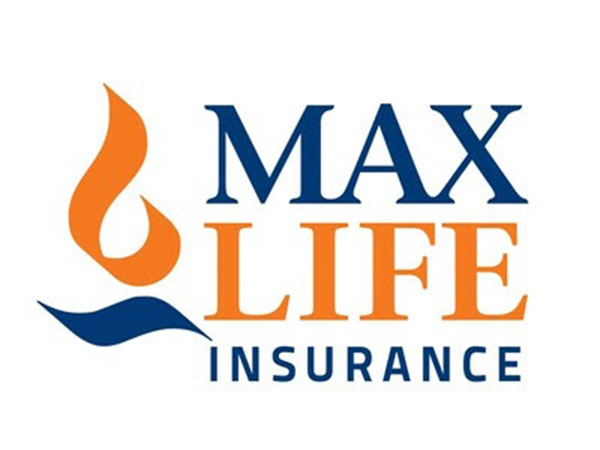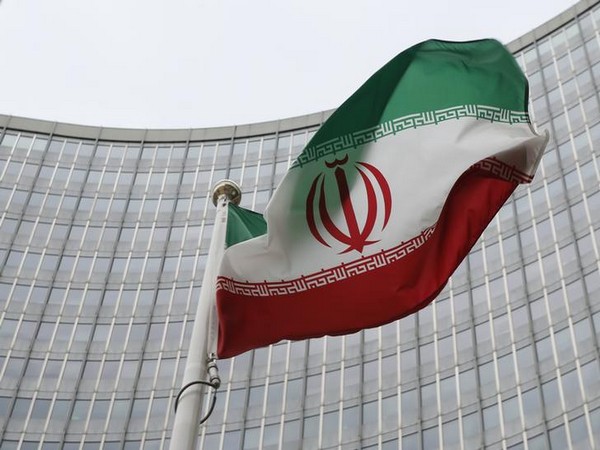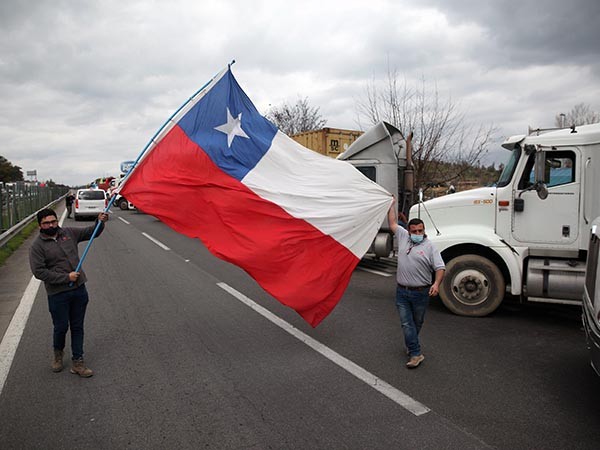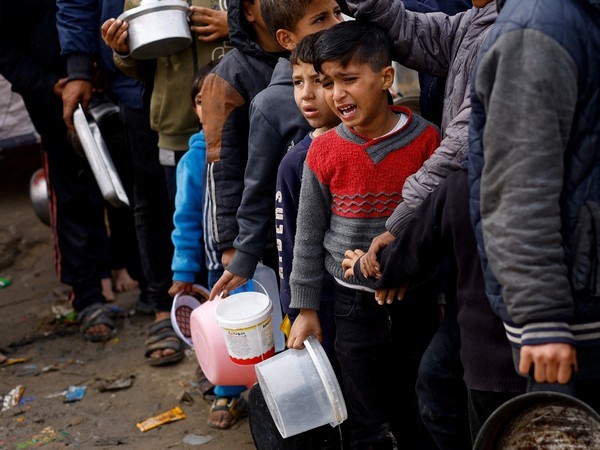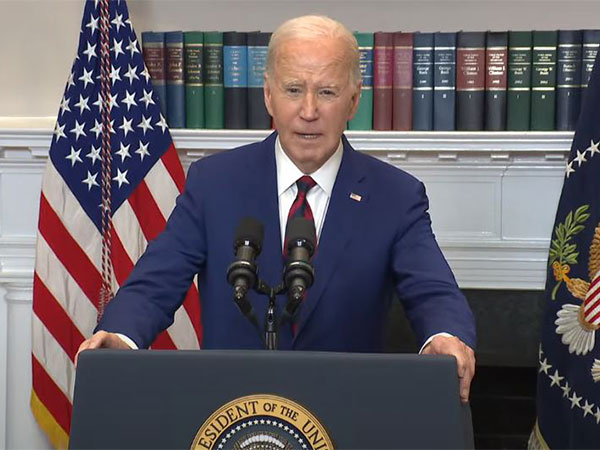Life Insurance awareness and adoption surges amongst Urban Indians; Protection Quotient now at 45: Max Life IPQ 6.0 Survey*
Feb 22, 2024
PRNewswire
New Delhi [India], February 22: Max Life Insurance Company Ltd. ("Max Life"/ "Company") today unveiled the findings of the sixth edition of its flagship survey, the India Protection Quotient survey (IPQ)* conducted in partnership with KANTAR, the world's leading marketing data and analytics company. Tapping 4,700 respondents across 25 Indian cities, this widely inclusive survey uncovers urban India's pulse on financial protection. Marking its 6th edition, the IPQ stands as one of the most comprehensive and long-running financial studies, covering varied cohorts, including Generation-Z, Women and Millennials, carrying forward the theme of 'Protection for All'.
As per IPQ 6.0, urban India demonstrates remarkable progress in financial readiness, with 3 out of 4 urban Indians now owning life insurance products. The Protection Index is at an all-time high of 45 in IPQ 6.0, up from 43 in IPQ 5.0, reflecting a positive trajectory in the nation's evolving protection awareness and adoption. This is reflected in the Knowledge Index increasing from 57 (IPQ 5.0) to 61 (IPQ 6.0) and life insurance ownership levels moving from 73 (IPQ 5.0) to 75 (IPQ 6.0). Over a five-year period, the India Protection Quotient has witnessed an impressive 10-point increase, from 35 in IPQ 1.0 to 45 in IPQ 6.0, that reiterates Urban India's constant journey towards building financial resilience.
The latest insights unveil a shift in the nation's financial well-being as well. Despite a modest increase from 63% in IPQ 5.0 to 65% in IPQ 6.0, urban Indians' financial security levels have yet to fully recover to pre-pandemic levels. Corresponding with last year's observations, metro cities are approaching the 50-point milestone this year, boasting a Protection Quotient of 49 points. In contrast, life insurance ownership and adoption in Tier II cities remain stagnant, with IPQ lagging at 36 points. In line with previous findings, South India retained its position as the most financially protected zone with a Protection Quotient of 49 points. This was followed by West India, which showcased a marked improvement in financial preparedness from 42 points in IPQ 5.0 to 46 points in IPQ 6.0. North and East zones lagged in financial protection at 41 and 40 points in this edition, respectively.
Unveiling key demographic insights, IPQ 6.0 sheds light on an interesting trend as millennials closely trail older age groups in financial preparedness, scoring at 45 and 46 for millennials and non-millennials, respectively. On the flip side, Gen Z emerges as the least financially shielded age group, holding a Protection Quotient of 42 points, largely due to lower insurance ownership. In a significant achievement, working women have successfully narrowed the financial protection gender gap. The Protection Quotient for working women has surged to 47 points, aligning with their male counterparts. Notably, 8 out of 10 working women are now investing in life insurance, marking a positive shift.
Prashant Tripathy, CEO and Managing Director, Max Life Insurance said, "Over the past five editions, the India Protection Quotient has become a true barometer for measuring urban India's financial protection levels. By including incremental cohorts' year-on-year, IPQ has become stronger, bigger, and more inclusive. Today, we are witnessing a remarkable shift in the financial consciousness of this diverse group, with 3 out of 4 urban Indians now owning life insurance. This opens opportunity areas for us in the space of digital transformation, creating tailored products, and building greater awareness initiatives that will help ensure an even larger insurance penetration in the country and support the vision of 'Insurance for All by 2047'".
Soumya Mohanty, MD & Chief Client Officer, South Asia, Insights Division, Kantar commented, "We are happy to collaborate with Max Life Insurance in advancing awareness about life insurance and addressing the pressing need for financial security across the nation. As one of the longest-running studies in India, the India Protection Quotient Survey serves as a valued tool in providing critical statistical insights for the life insurance sector. Over the course of six years, the IPQ findings have revealed substantial data relating to financial behavior, savings patterns, and insurance uptake amongst urban Indians, making it an indispensable marker of the country's financial preparedness."
About India Protection Quotient
Instituted in 2019, India Protection Quotient is an annual property by Max Life Insurance in association with Kantar aimed at understanding the pulse of Indian consumers in the financial protection space. Launched with the underlying objective of increasing penetration of term insurance as the most fundamental and economical form of life insurance, the survey aims to reveal the state of urban Indians with regards to current financial security levels, changing savings and investment patterns, key anxieties, and triggers of financial protection in a contemporary world. The India Protection Quotient is a proprietary tool developed by Max Life in partnership with Kantar to gauge the degree to which Indians feel protected from future uncertainties on a scale of 0 to 100. It is based on attitudes, mental preparedness around future uncertainties, awareness, and ownership of life insurance product categories (term, endowment, and ULIP).
The following findings reveal insights that highlight urban India's shift in attitude and approach towards financial preparedness studied by India Protection Quotient 6.0:
FINANCIAL PREPAREDNESS OF URBAN INDIANS
* Highest progress seen in awareness of life insurance products, with more than 50% rise in the Knowledge Index since IPQ 1.0; Life insurance ownership soars to 75%
In a positive move, urban India has made huge strides in awareness about life insurance over the past six years, with the Knowledge Index increasing from 39 in IPQ 1.0 to 61 as per the IPQ 6.0 study. Life insurance ownership too witnessed a steady improvement from 65% in IPQ 1.0 to 75% in the IPQ 6.0 survey indicating urban India's steady path towards financial protection from unforeseen challenges.
* Metro and Tier II findings reveal a large gap in the Protection Quotient
IPQ 6.0 revealed a large gap in the IPQ scores of Metro and Tier II cities, with Metro cities inching towards the halfway mark at 49, followed by Tier I cities securing 45 points but Tier II trailing at 36 points. This disparity underscores the ongoing challenge of promoting life insurance awareness and accessibility in smaller urban centers, highlighting the need for targeted interventions to address barriers to financial pliability.
* Interesting trends in urban India's financial behavior and savings patterns
The burden of rising medical expenses has emerged as the top concern among urban Indians, with nearly two-thirds of the population expressing significant apprehensions. Despite growing focus on attaining a financially stable retired life, saving for retirement takes a back seat as urban Indians prioritize other savings goals like children's education and marriage.
OUTLOOK TOWARDS TERM INSURANCE
* Gap between Awareness and Uptake of Term Insurance widens as per IPQ 6.0
Despite heightened awareness about term plans, from 64% in IPQ 5.0 to 70% in IPQ 6.0, term insurance ownership has seen negligible improvement since the previous edition, standing at 31% in IPQ 6.0, up from 30% in IPQ 5.0. The widened gap between ownership and awareness of term insurance products reflects shifting savings priorities, as IPQ 6.0 reveals how safeguarding against the untimely death of the breadwinner holds lower importance amongst respondents. In terms of other life insurance products, IPQ 6.0 highlights that 4 out of 10 urban Indians now own one or more savings products, whereas preference for ULIPs remains low at 14% ownership levels. It has also been seen that urban Indians assign higher importance to Cover and Riders while buying Term Insurance, while the priority assigned to premiums has diminished. Not thinking about life insurance, and other investments are the major barriers witnessed in this edition. An interesting point to note is that today 1 out of 4 Indians prefer Health Insurance over Life Insurance, underscoring the value ascribed to health by Indians.
MILLENIALS & NON MILLENIALS
* Financial preparedness across generations reveals disparities
The latest data from IPQ 6.0 reveals an intriguing shift in financial preparedness across different generations. While millennials are nearing parity with non-millennials in terms of financial readiness with a Protection Quotient of 45 and 46, respectively, Generation Z trails slightly behind with a Protection Quotient of 42 points. IPQ 6.0 highlights a notable gap in life insurance ownership levels, with Generation Z at 69 compared to non-millennials at 79. Interestingly, Generation Z demonstrates higher scores in Security levels, indicating a strong sense of financial security at 66, surpassing non-millennials at 63. While Generation Z shows promise in financial planning, there is room for improvement, particularly in term insurance uptake.
SALARIED VS SELF-EMPLOYED
* Self-employed urban Indians exhibit a 9-point improvement in Knowledge Index in just one year
As per IPQ 6.0, while salaried individuals have maintained relatively stable IPQ scores, self-employed urban Indians are making strides in financially preparing for an uncertain tomorrow. Reflecting a significant enhancement in financial literacy and awareness, the Knowledge Index of self-employed segment stands at 64 - 3 points above the nationwide Knowledge Index scores. This surge in knowledge is paralleled by a tangible increase in ownership levels, with a rise from 73% to 77%, indicating how the cohort is actively addressing gaps in financial protection.
DIGITALLY SAVVY URBAN INDIANS
* With an IPQ of 54, Urban India's digitally savvy consumers are more financially protected than any other cohort
IPQ 6.0 reveals that the Protection Quotient of digitally-savvy urban Indians is 9 points higher than their non-digital counterparts, with the score of the cohort at 54, whereas the non-digital cohort stands at 45 points. The Knowledge Index remains highest in the digitally savvy urban Indian cohort at 73, with 80% of respondents owning life insurance. While traditional channels like agents remain prevalent, there's a shift towards online channels, reflecting digitally-savvy consumers' preference for convenience and accessibility. The substantial jump from 11% to 24% in fitness app subscribers within a year underscores the evolving lifestyle choices and preferences of urban Indians.
Read more about the India Protection Quotient at - https://www.maxlifeinsurance.com/maxlife-ipq
Disclaimer:
The study is conducted in the top 25 Urban metros, Tier 1 and Tier 2 cities; hence, its findings are representative of metro, Tier 1 and Tier 2 cities in Urban India only.
* Metro - Delhi, Kolkata, Chennai, Bangalore, Hyderabad, Mumbai
* Tier 1 - Ludhiana, Jaipur, Lucknow, Patna, Bhubaneshwar, Vizag, Ahmedabad, Bhopal, Pune
* Tier 2 - Dehradun, Moradabad, Guwahati, Bokaro, Kolhapur, Jamnagar, Raipur, Ujjain, Hubli-Dharwad, Tiruchirappalli
* IPQ 6.0 vs IPQ 5.0 data comparison is amongst 25 markets only [6 metros, 9 Tier 1 and 10 Tier 2]
* The minimum sample to conclude any findings of the study is 270 with an error margin of +-5.964%
* Findings represented here are as per the IPQ 6.0 survey and Max Life doesn't assume responsibility or liability for any contradictions.
About Max Life Insurance
Max Life is a Joint Venture between Max Financial Services Limited ("MFSL") and Axis Bank Limited. Max Life offers comprehensive protection and long-term savings life insurance solutions through its multi-channel distribution, including agency and third-party distribution partners. Max Life has built its operations over two decades through a need-based sales process, a customer-centric approach to engagement and service delivery, and trained human capital. As per the annual audited financials for FY2022-23, Max Life has achieved a gross written premium of INR 25,342 Cr.
For more information, please visit the Company's website at www.maxlifeinsurance.com
About Kantar
Kantar is the world's leading marketing data and analytics business and an indispensable brand partner to the world's top companies. We combine the most meaningful attitudinal and behavioural data with deep expertise and advanced analytics to uncover how people think and act. We help clients understand what has happened and why and how to shape the marketing strategies that shape their future.
For more information, visit www.kantar.com
Logo - https://mma.prnewswire.com/media/1992948/4492032/Max_Life_Insurance_Logo.jpg
(ADVERTORIAL DISCLAIMER: The above press release has been provided by PRNewswire. ANI will not be responsible in any way for the content of the same)
